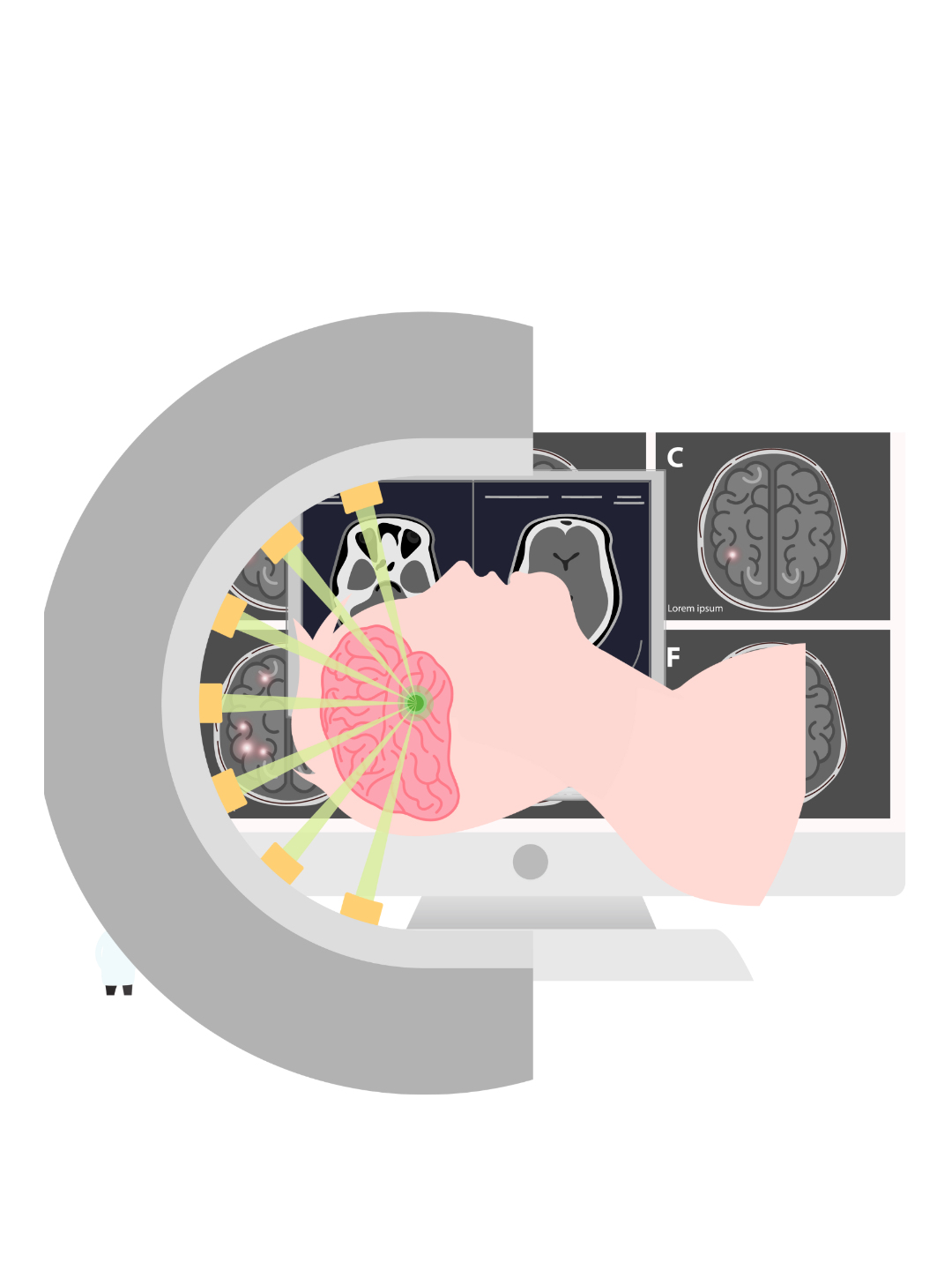Brain Tumor

What is a Brain Tumor?
A brain tumor is an abnormal growth of cells within the brain or central nervous system. Brain tumors can be classified as primary (originating in the brain) or secondary (originating elsewhere in the body and spreading to the brain). They can also be categorized as benign (non-cancerous) or malignant (cancerous).
Who's at risk for Brain Tumors?
Brain tumors can affect people of all ages, but certain factors can increase the risk. These include age, family history of brain tumors, exposure to ionizing radiation, and certain genetic syndromes.
What causes Brain Tumors?
The exact cause of brain tumors is not fully understood, but it is believed to result from a combination of genetic and environmental factors. Some brain tumors can be linked to genetic mutations or exposure to ionizing radiation.
How do Brain Tumors start?
Brain tumors typically start when cells in the brain or central nervous system begin to grow and divide uncontrollably, forming a mass or tumor. The growth and development of these abnormal cells can eventually disrupt the normal functioning of the brain.
What are the symptoms of Brain Tumors?
Symptoms of brain tumors can vary depending on the size, location, and type of the tumor. Common symptoms may include headaches, seizures, changes in vision or hearing, difficulty with balance or coordination, speech difficulties, and cognitive or personality changes.
How are Brain Tumors diagnosed?
Brain tumors are diagnosed based on a comprehensive evaluation that includes a review of the individual's medical history, a description of symptoms, and a neurological examination. A doctor may also order tests such as imaging studies (MRI or CT scans), a lumbar puncture, or a biopsy to confirm the diagnosis and determine the type of tumor.
How can Brain Tumors be treated?
Treatment for brain tumors depends on the type, size, and location of the tumor and may involve a combination of surgery, radiation therapy, chemotherapy, and targeted therapy. The goal of treatment is to remove or shrink the tumor, alleviate symptoms, and prevent the tumor from growing or spreading.
What complications may occur with Brain Tumors?
If left untreated, brain tumors can lead to complications such as increased intracranial pressure, neurological deficits, and even death. Treatment for brain tumors can also lead to complications, such as infection, bleeding, and cognitive or physical impairments.
How can I prevent Brain Tumors?
There is no known way to prevent brain tumors, but early detection and treatment can improve outcomes and reduce the risk of complications.
Long-term management of Brain Tumors
Long-term management of brain tumors may involve ongoing surveillance, follow-up appointments, and monitoring for signs of recurrence or complications related to treatment. Individuals who have been treated for brain tumors should maintain a healthy lifestyle and stay in close communication with their healthcare team.
What is recent research saying about Brain Tumors?
Recent research on brain tumors focuses on understanding the underlying causes, improving treatment options, and identifying new treatment approaches. Studies are exploring the role of genetics, molecular markers, and environmental factors in the development of brain tumors. Additionally, research is being conducted on new medications and therapies, such as immunotherapy and targeted therapy, to help manage the disease and improve overall survival rates.
Where can I go for more information on Brain Tumors?
For more information on brain tumors, visit the National Cancer Institute, the American Brain Tumor Association (ABTA) website, the National Brain Tumor Society (NBTS) website, or contact a local healthcare professional or cancer support organization.

